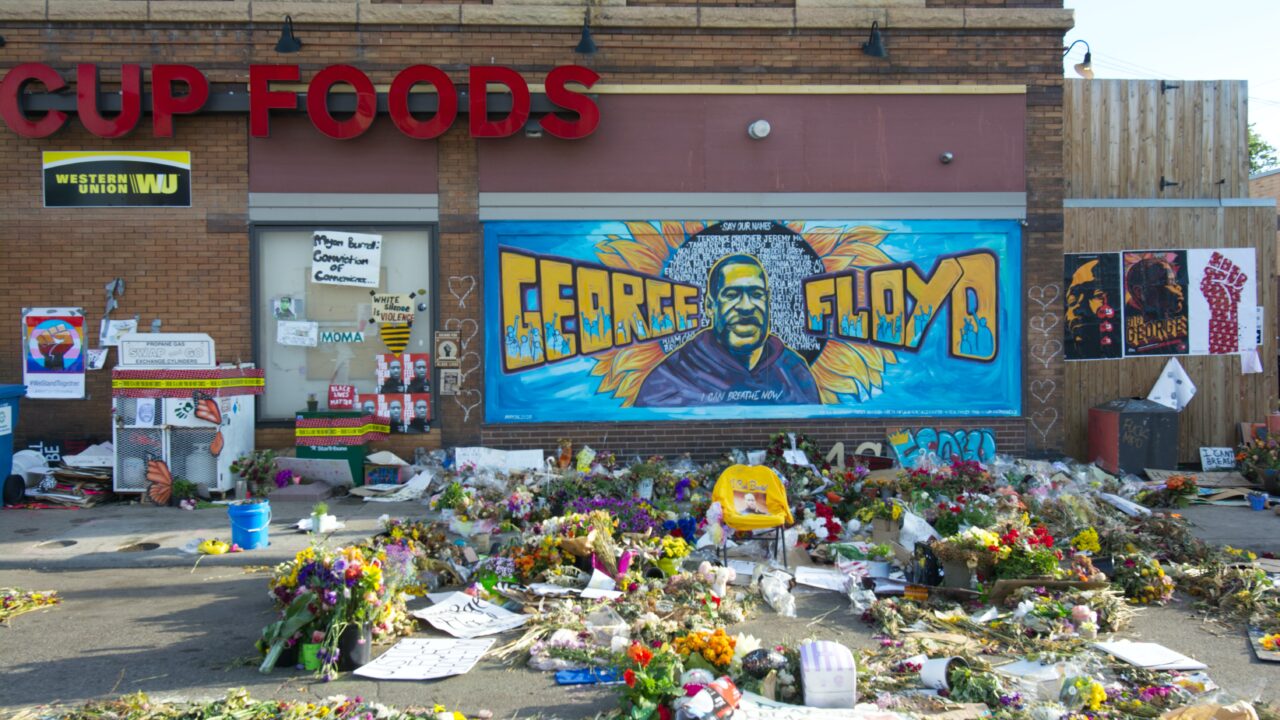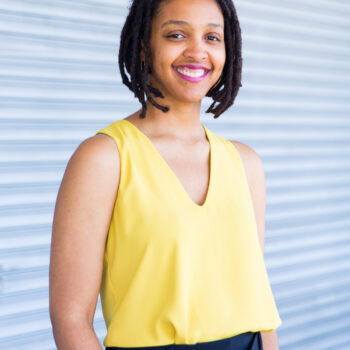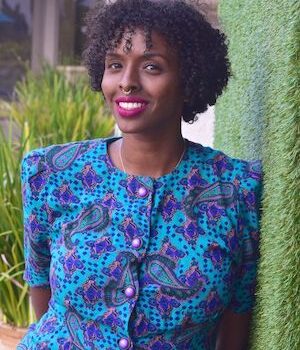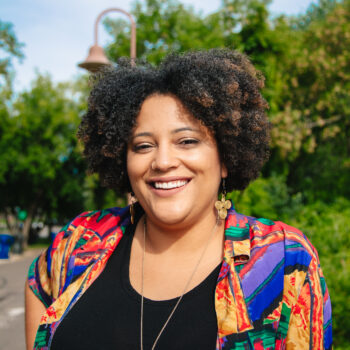Where We Were
“A victim of God may, Through learning adaption, Become a partner of God, A victim of God may, Through forethought and planning, Become a shaper of God. Or a victim of God may, Through shortsightedness and fear, Remain God’s victim, God’s plaything, God’s prey.”
― Octavia E. Butler, Parable of the Sower
Kandace
It was actually a nice day in Minneapolis on May 25th (not always guaranteed in the Midwest). I sent my partner to the store to get supplies for a socially distanced cookout with our home pod. They almost went to Cup Foods, which sits two blocks from our front steps. Last minute, I asked them to get in the car instead so they could go to the grocery store and grab a few fresh ingredients. Not a day goes by that I don’t think about what could have happened if they had run that errand to Cup.
Later that day, the texts from comrades, friends, and allies began pouring in, just like they have for me for the last several years each time the police kill an unarmed Black person in broad daylight. We didn’t know George’s name yet, but we knew he was brutalized till his last breath, and our community was preparing to mourn another life lost at the hands of police.
That night, on Zoom with teammates from Black Visions and Reclaim the Block, we crafted an email for our followers and demands for our city council and mayor, whom we had been calling to divest from the police and invest in community safety solutions for several years. Within 26 hours, we launched our email and began moving a conversation online with #DefundthePolice. I also masked up with friends to attend the rally at what has become George Floyd Square. The conditioning of “self-quarantine life” had me both amazed and slightly terrified at the amount of people out, ready once again to demand justice.
Solana
May 25th is my wedding anniversary. Pandemic life meant 2020 was the first year we wouldn’t be celebrating at a live baseball game with family and friends, but we found time to relax away from phones and media. I woke the next day to news that yet another Black man, George Floyd, was killed by the police. Without any details, I knew this was another video I couldn’t bring myself to watch. My heart sank. My mind went to my cousins in Cleveland whose young Black lives I worry about constantly. As protests and marches, uprisings and vigils ensued in my Oakland neighborhood, as friends reached out to hold space for grief and caring, I wondered about my role. What should be different about my work moving forward?
What I heard and saw was powerful: organizers calling to defund the police, calling for investment in community supports that actually make us all safe, calling for the end of racial economic oppression. I was particularly moved by Kimberly Latrice Jones’s on point analysis connecting the roots of our nation’s racial caste system to the economic oppression faced today, and how it showed up in the streets. We at Liberation in a Generation — the organization I co-founded and co-direct — were having conversations not only about divestment but also about what a vision for investment in communities might look like: universal healthcare, guaranteed income, and housing that creates possibilities for real safety.
I felt called to continue supporting grassroots movements, to amplify and co-create analyses that squarely name the intersections of racial and economic justice, to confront the reality that our economic and racial caste systems were birthed simultaneously, are inextricably intertwined, and color all of our movements for justice.
Miski
When George Floyd was murdered, I was already ill. I had gone to bed early the night before, as a migraine kept me from engaging in anything in any sort of fruitful way. Around noon the next day, when I finally reached for my phone, I noticed the texts, calls, and voice memos from comrades across the country, the familiar outpouring of love and concern. Are you okay? I’m so sorry. Can I support you in any way? What do you need? Questions I never have the answer to but have to figure out quickly.
George Floyd was murdered blocks from where I live, but thanks to technology, I found out about this particular incident of Black death through the expressions of care from loved ones vast distances away, through the outrage, shock, and disbelief of Black people (humanity, really) the world over. Viral Black death meant the world knew about George’s murder before Minneapolis got to process, let alone grieve. This murder, not long after Breonna Taylor and Ahmaud Arbery, was the one that illustrated for the world the brutality of police terror and violence in this midst of a pandemic.
The day after George was murdered, community gathered at 38th and Chicago (now affectionately known as George Floyd Square) for a rally that led to a march that led to the 3rd precinct and its burning. I was shook way before that moment. I was shook as I watched hundreds and hundreds of people march shoulder to shoulder, front to back, for blocks and blocks during a pandemic that we still knew so little about. It was in that moment that Minneapolis shouted loudly: police terror and violence are even more deadly than the unknown. Our declaration resonated with the world.
In the days that followed, we’d be asked over and over: why is this moment different? I remember thinking that nothing and everything was different. The same cycle of emotions but against the backdrop of a pandemic. People no longer had the regularity of their life patterns, their activities, or their habits to distract them from the truth — the truth that capitalism is failing us, and failing us hard, the truth of the weight of the consistent violence and abuse that Black people experience at the hands of the state.
The isolation of the pandemic, and collectively witnessing of George Floyd’s murder, released a righteous rage in South Minneapolis that spread across the globe. The uprisings that followed unleashed a deep need for connection — to process together in the midst of so much violence, to affirm each other’s overflowing emotions, to honor the sacredness of life, and to step into the necessity of protecting each other.
The last year of our lives has been….a lot. I don’t have all the words, but I feel both grateful and exhausted. The last year has been about catching the beat and slowing down enough to ride it out, learning what it means to two-step with and into change, and adapting quickly enough to be a shaper of change. The last year has required deep digging in and a willingness to look up and let go. This last year has been hard — full of regrets, of clarity — and incredibly beautiful. It has been fulfilling; it has been painful. It has challenged and tried to steal my own humanity alongside my people’s. The last year has required me to be certain that I love myself, and that I act on that. To take responsibility wholeheartedly for the world I wish to be a part of creating.
Abolition Is the Goal
We’ve brought together an incredible group of abolitionist organizers and educators to share their reflections on the past year and their visions for a future free from police. As we introduce this issue, we want to be clear about one thing: abolition is the goal. “Defund the police” is a clear rallying call based on an understanding that police and prisons do not keep us safe. It is an economic policy argument that recognizes the role of capital resources in fueling our oppression. And it is a call to budget and policy makers to invest in the care our communities need to create real safety.
While Defund is a clear ask, it is not the destination but a step on the path to abolition. Taking away and reallocating capital resources opens the possibility of imagining what individual and community supports need to be in place to realize true and inclusive public safety. Divestment compels us to rethink the role and responsibility of our local, state, and federal governments in truly financing those supports. And it gives us space to center the leadership of Black people and people of color in determining that future.
This work lives beyond viral hashtags, beyond the moments when mainstream media is paying attention to the fruits of decades of Black-led organizing. In the aftermath of 2020, our communities face heightened threats, from co-optation to retaliatory violence, including militarized suppression of protesters. What we know too well in Minnesota is that these flash-in-the-pan moments are only coming more rapidly, with shorter periods of time to recover from the most recent — the near daily — trauma caused by the state.
If we know these moments are patterns, boomeranging back to us with slightly different characters and conditions, what must we do? As you’ll hear in our conversation with Denise Perry, Prentis Hemphill, and Adaku Utah, we must build our people’s resilience through strategy, organization, infrastructure, and care. If what brings you to this question is an authentic desire to win, to transform, to free your people, then the answer lies in the critical need to build beyond and throughout these moments of whirlwind.
Movements are built by organizations.
In the process of curating this issue, we have been reflecting on the need to build our people up for the long-haul fight for liberation. Many people hear the story of Minneapolis in 2020 but don’t know that organizers had been leading campaigns calling to defund the police since 2018. They don’t hear that the campaign in 2018 — which successfully moved $1.1 million from MPD (Minneapolis Police Department) — was built on the lessons learned from other campaigns. In our storytelling about how change happens, we need to talk about the work in between hearings, direct actions, and conversations with elected officials. It needs to be common knowledge that we are and must continue to build organizations capable of absorbing new people into our movements, educating them on the interconnectedness of the systems that oppress us, and honing the skills of new leaders.
Organizations need people. People need organizations, too.
We must also build political homes, places where our communities can practice self-governance and ways of being with each other that bring into the now what we envision for our society in the future. Organizations are our testing grounds, building our collective capacity to live more liberated lives. At the same time, people are the bones, blood, and meat of organizations. You cannot have one without the other — not authentically, at least. Too often, we learn in public, out loud, the ways we need to tend to the people who make up our formations for justice. As we fortify our struggle for the next transformative moment, we also need to create spaces and practices that center care and tend to the humans who fill up our streets or Zoom rooms. As the non-profit industrial complex drives too many of us and our organizations away from practicing holistic sustainability and our own decolonization, we call on all of us to step deeper, right now, into a practice of holding these types of relationships amongst ourselves, of modeling the world we seek to build.
Reflection is a critical piece of the work.
Editing this issue of The Forge has been a welcomed opportunity to talk, laugh, mourn, and process with people in movement together. Space for reflection, especially collective reflection, can be rare in movement work. But in the midst of such violence, grief, hope, anxiety, progress, and regression, we must create and demand spaciousness to ask each other, what just happened? What was that like for you? Why did this happen? What are we doing together, and is it working? What does it mean for me to really show up for you, for us?
Processing and learning in community is a necessary practice toward fortifying us for the work of building and imagining together. Abolition is a daily practice that is both individual and collective and that grows from holding space for our victories, our defeats, our sorrows, our joys.
Inside the Issue
Defund the Police became a rallying cry in 2020, but it’s roots run way deeper. For this issue, we got to be in conversation with so many people who have shaped our values, our orientation, our commitment to this work, and, truly, our beings. We’ve invited practitioners from across movement to share what the uprisings meant to them, what strategies have been successful in sustaining the momentum, how Defund the Police supports and intersects with demands for many kinds of justice, and how we show up for the work and shift the culture within liberatory movements. Plus, there are some really critical and pointed takes on philanthropy and the ways it needs to adapt — and quickly.
These are the words of our teachers, our mentors; these are the people who we get to build with, who are part of the reason we do the work we do. This is an intergenerational collection of writers and organizers, movement and world builders, soul stirrers and table shakers, healers and the still healing. Doing these interviews and learning from them has been nothing short of embodied joy and growth, and we are so excited to share them with you.
Dig In
Simon Adams on the new bill in Florida restricting the right to protest; Dara Baldwin and Syrus Ware on the centrality of disability justice to the movement; Tracey Corder on living in abundance; Ejeris Dixon on addressing harm, violence, conflict, and abuse within abolitionist organizing spaces; Kesi Foster and Darnel Joseph on police-free childhoods; Mercedes Fulbright and D’Atra Jackson on how to center and support Black leadership, why we need to build state-wide power, and what it will take to win in the long term; Makia Green on mutual aid and the importance of centering care in the work; Prentis Hemphill, Denise Perry, and Adaku Utah on the centrality of care, the importance of taking risks and making mistakes, and investing in Black leadership; Mariame Kaba on how her work has changed, why she writes, and how she keeps visioning at the forefront of her work; Rukia Lumumba and Maurice Mitchell on co-governance; Greisa Martinez and Ash-Lee Woodard Henderson on supporting Black leadership, the spiritual elements of organizing work, and their visions for the future; MPD 150’s abolitionist report and toolkit; Barbara Ransby on the challenge to our movements in this moment; Kayla Reed on the relationship between movements and organizations, how money complicates the work, and our duty to win; and Toni-Michelle Williams on silliness as a freedom practice.



